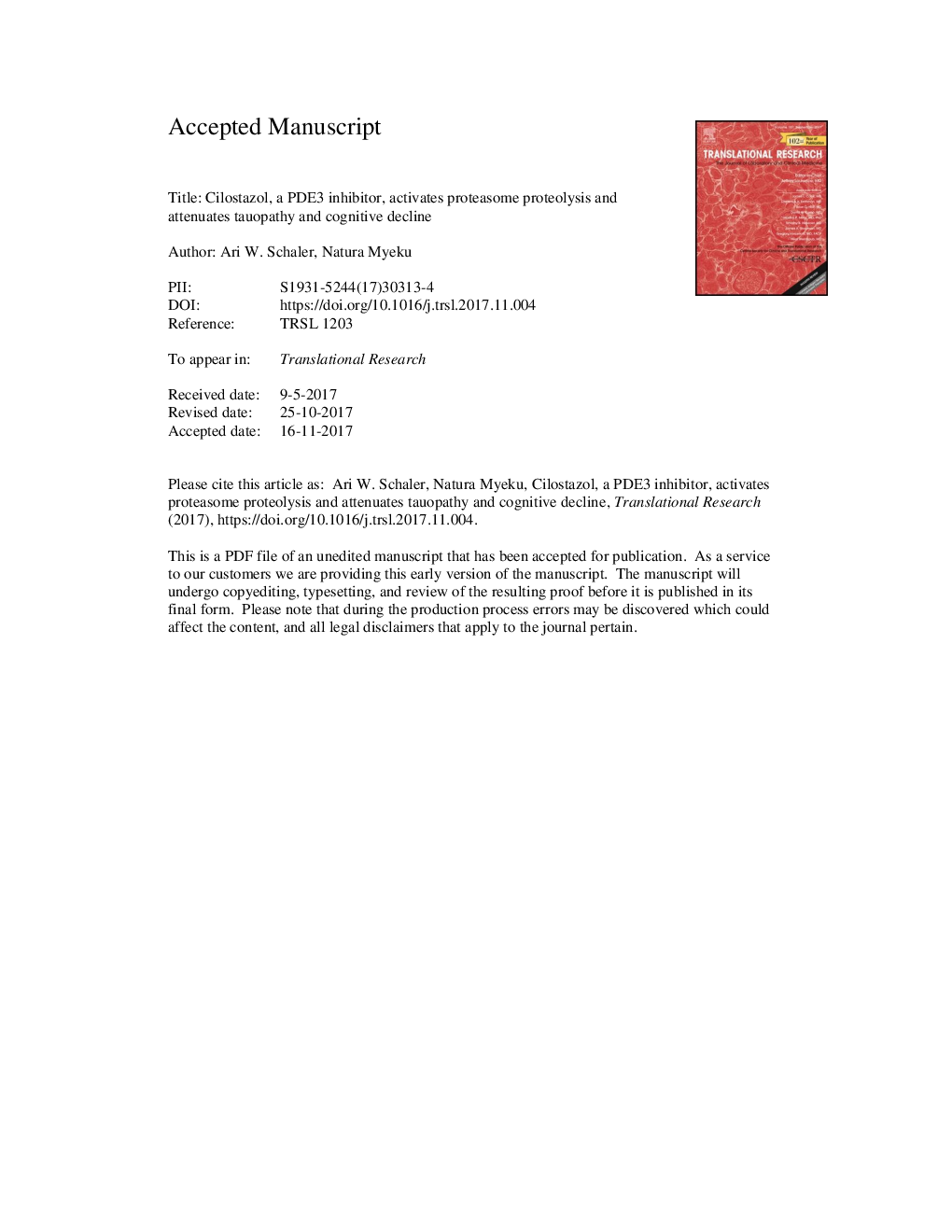| کد مقاله | کد نشریه | سال انتشار | مقاله انگلیسی | نسخه تمام متن |
|---|---|---|---|---|
| 8768989 | 1597917 | 2018 | 30 صفحه PDF | دانلود رایگان |
عنوان انگلیسی مقاله ISI
Cilostazol, a phosphodiesterase 3 inhibitor, activates proteasome-mediated proteolysis and attenuates tauopathy and cognitive decline
ترجمه فارسی عنوان
سیلوستازول، مهار کننده فسفودی استراز 3، پروتئازوم-پروتئازوز فعال پروتئازوم را فعال می کند و تئوپاتی و کاهش شناختی را کاهش می دهد
دانلود مقاله + سفارش ترجمه
دانلود مقاله ISI انگلیسی
رایگان برای ایرانیان
کلمات کلیدی
MWMFDAPDEiFTDpKaPSPCBDmild cognitive impairment - اختلال شناختی خفیفAlzheimer's disease - بیماری آلزایمرHuntington's disease - بیماری هانتینگتونfrontotemporal degeneration - دژنراسیون پیشانی صوتیCorticobasal degeneration - دژنراسیون کورتیزوبازالFood and Drug Administration - سازمان غذا و داروUbiquitin proteasome system - سیستم پروتئازوم UbiquitinProgressive supranuclear palsy - فلج پیشرونده ی فوق هسته ایMorris water maze - ماز آب آب موریسPhosphodiesterase inhibitor - مهار کننده فسفودی استرازMCI - همراه اولprotein kinase A - پروتئین کیناز AUPS - یو پی اس
موضوعات مرتبط
علوم پزشکی و سلامت
پزشکی و دندانپزشکی
پزشکی و دندانپزشکی (عمومی)
چکیده انگلیسی
Alzheimer's disease and several variants of frontotemporal degeneration including progressive supranuclear palsy and corticobasal degeneration are characterized by the accumulation of abnormal tau protein into aggregates. Most proteins, including tau, are degraded via the ubiquitin proteasome system, but when abnormal tau accumulates, the function of 26S proteasomes is downregulated. The negative effect of tau aggregates on the function of the proteasome can have deleterious consequences on protein homeostasis and disease progression. Developing therapies aimed at clearing abnormal tau are thus of considerable interest. In the present study, we investigated the effect of cilostazol, an FDA-approved selective phosphodiesterase 3 inhibitor, on a mouse model of tauopathy (line rTg4510). Administration of cilostazol for 30 days enhanced proteasome function via the cyclic adenosine 3â²,5â²-monophosphate/protein kinase A pathway and attenuated tauopathy and cognitive decline in rTg4510 mice. These results suggest that cilostazol, or other FDA-approved drugs acting via the same pathway, has the potential to be repurposed for the treatment of patients with early-stage tauopathy.
ناشر
Database: Elsevier - ScienceDirect (ساینس دایرکت)
Journal: Translational Research - Volume 193, March 2018, Pages 31-41
Journal: Translational Research - Volume 193, March 2018, Pages 31-41
نویسندگان
Ari W. Schaler, Natura Myeku,
